The DaSy Center is working with the U.S. Department of Education’s Office of Special Education Programs (OSEP) and the Early Childhood Technical Assistance Center (ECTA) to explore the feasibility of using a Pay for Success (PFS) funding model with Part C and 619 preschool programs. PFS is an innovative financing mechanism that harnesses private capital to fund evidence-based prevention-focused programs or social services.
This page provides selected resources about PFS and Social Impact Bonds (a popular PFS model). This includes information about what PFS is, how to design and evaluate PFS initiatives, examples of current PFS efforts in early childhood, and examples of PFS in the news. Additional information is available in the presentation and recording of our 2016 PFS webinar.
PFS in the news
 8 Preschool Pay For Success Pilots FundedOn December 22, 2016, the U.S. Department of Education announced $3 million in Pay for Success grants for preschool programs. These grants will allow ...Read more
8 Preschool Pay For Success Pilots FundedOn December 22, 2016, the U.S. Department of Education announced $3 million in Pay for Success grants for preschool programs. These grants will allow ...Read more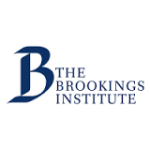 Identifying education outcomes for Social Impact Bonds for early childhoodThis 2015 Brookings Institute blog post summarizes a joint Institute for Child Success and Ounce of Prevention Fund event that identified what metrics to use ...Read more
Identifying education outcomes for Social Impact Bonds for early childhoodThis 2015 Brookings Institute blog post summarizes a joint Institute for Child Success and Ounce of Prevention Fund event that identified what metrics to use ...Read more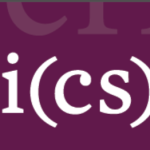 Climbing the Pay for Success Learning Curve: How a working group helped South Carolina understand and prepare for PFS financingThis brief 2014 report summarizes the experience and lessons learned of a PFS workgroup sponsored by the Institute for Child Success in South Carolina between ...Read more
Climbing the Pay for Success Learning Curve: How a working group helped South Carolina understand and prepare for PFS financingThis brief 2014 report summarizes the experience and lessons learned of a PFS workgroup sponsored by the Institute for Child Success in South Carolina between ...Read more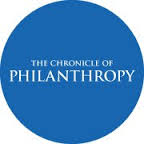 Pay-for-Success Projects Spread to More StatesThis 2014 news and analysis piece highlights Pay-For-Success growth in California and efforts to advance in Massachusetts, Utah and New York. Donovan, D. (2014). Pay-for-Success Projects ...Read more
Pay-for-Success Projects Spread to More StatesThis 2014 news and analysis piece highlights Pay-For-Success growth in California and efforts to advance in Massachusetts, Utah and New York. Donovan, D. (2014). Pay-for-Success Projects ...Read more
What is Pay for Success (PFS)?
 The Critical Role of Education Data in Early Childhood Pay For Success EffortsConference: STATS-DC Date: August 2017 Presenters: Jennifer Tschantz , Megan Cox, & Donna Spiker This session will provide an overview of Pay For Success (PFS), an innovative financing mechanism ...Read more
The Critical Role of Education Data in Early Childhood Pay For Success EffortsConference: STATS-DC Date: August 2017 Presenters: Jennifer Tschantz , Megan Cox, & Donna Spiker This session will provide an overview of Pay For Success (PFS), an innovative financing mechanism ...Read more The payoff of pay-for-successThis 2015 article describes some of the early PFS project in the U.S. and discusses some of the pros and cons of the model as ...Read more
The payoff of pay-for-successThis 2015 article describes some of the early PFS project in the U.S. and discusses some of the pros and cons of the model as ...Read more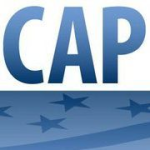 Frequently Asked Questions: Social Impact BondsThis 2012 guide contains a set of common questions about Social Impact Bonds (a type of PFS model). Costa, K., Shah, S., ...Read more
Frequently Asked Questions: Social Impact BondsThis 2012 guide contains a set of common questions about Social Impact Bonds (a type of PFS model). Costa, K., Shah, S., ...Read more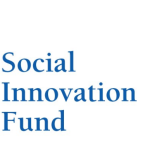 Pay for success: A primer for social innovatorsThis 2014 resource is directed at organizations considering using PFS to finance services and is organized as a series of curated resources, including reports and ...Read more
Pay for success: A primer for social innovatorsThis 2014 resource is directed at organizations considering using PFS to finance services and is organized as a series of curated resources, including reports and ...Read more What are social impact bonds? An innovative financing tool for social programsThis is a general information resource about PFS that outlines some of the advantages and challenges of using PFS. Kohli, J., Besharov, D., J., & Costa, ...Read more
What are social impact bonds? An innovative financing tool for social programsThis is a general information resource about PFS that outlines some of the advantages and challenges of using PFS. Kohli, J., Besharov, D., J., & Costa, ...Read more
Designing and evaluating PFS initiatives
 Chicago’s Pay for Success Program Evaluation: Year 3Launched in 2014, this innovative public-private partnership expands Chicago Public Schools’ Child-Parent Center (CPC) program, making it possible for more than 2,600 kids and their ...Read more
Chicago’s Pay for Success Program Evaluation: Year 3Launched in 2014, this innovative public-private partnership expands Chicago Public Schools’ Child-Parent Center (CPC) program, making it possible for more than 2,600 kids and their ...Read more Pay for Success Feasibility Tool kit: Considerations for State and Local LeadersReleased in October 2017, this tool kit provides general information on PFS and discusses important elements to consider during the feasibility phase of a PFS ...Read more
Pay for Success Feasibility Tool kit: Considerations for State and Local LeadersReleased in October 2017, this tool kit provides general information on PFS and discusses important elements to consider during the feasibility phase of a PFS ...Read more GAO Report on PFSThis is a 2015 Government Accountability Office (GAO) report examining how selected PFS projects have been structured and what potential benefits they can provide, how ...Read more
GAO Report on PFSThis is a 2015 Government Accountability Office (GAO) report examining how selected PFS projects have been structured and what potential benefits they can provide, how ...Read more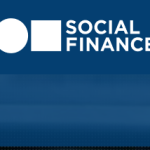 Social Impact Bonds: The Early YearsThis 2016 Social Finance white paper provides an updated of summary the 60 PFS-financed projects launched across the globe between 2010 and 2016. It also ...Read more
Social Impact Bonds: The Early YearsThis 2016 Social Finance white paper provides an updated of summary the 60 PFS-financed projects launched across the globe between 2010 and 2016. It also ...Read more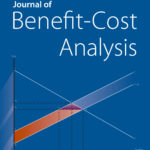 Using benefit-cost analysis to scale up early childhood programs through Pay-for-Success financingThis 2015 journal article describes social impact borrowing as a new method for financing public sector, outlines contribution of benefit cost analysis (BCA), and discusses ...Read more
Using benefit-cost analysis to scale up early childhood programs through Pay-for-Success financingThis 2015 journal article describes social impact borrowing as a new method for financing public sector, outlines contribution of benefit cost analysis (BCA), and discusses ...Read more Pay for Success in the U.S. – Summaries of Financed ProjectsThis 2015 resource contains a summary from the Institute for Child Success about eight current PFS-funded projects across a range of policy areas/service sectors. These ...Read more
Pay for Success in the U.S. – Summaries of Financed ProjectsThis 2015 resource contains a summary from the Institute for Child Success about eight current PFS-funded projects across a range of policy areas/service sectors. These ...Read more Social impact bonds: A promising new financing model to accelerate social innovation and improve government performance.This 2011 resource provides an introduction to social impact bonds (SIBs), a type of PFS funding model. It provides a general introduction to the model, ...Read more
Social impact bonds: A promising new financing model to accelerate social innovation and improve government performance.This 2011 resource provides an introduction to social impact bonds (SIBs), a type of PFS funding model. It provides a general introduction to the model, ...Read more Social Innovation Fund evaluation plan guidance: A step-by-step guide to designing a rigorous evaluationThis 2014 document provides guidance for PFS grantees, subgrantees, and evaluators for preparing a PFS evaluation plan and includes a detailed suggested evaluation plan outline ...Read more
Social Innovation Fund evaluation plan guidance: A step-by-step guide to designing a rigorous evaluationThis 2014 document provides guidance for PFS grantees, subgrantees, and evaluators for preparing a PFS evaluation plan and includes a detailed suggested evaluation plan outline ...Read more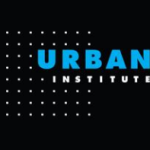 Foundational concepts and terms of Pay for SuccessThis 2015 brief addresses questions that governments and social service providers often pose when constructing, negotiating and executing a pay for success project. Roman, J. K., ...Read more
Foundational concepts and terms of Pay for SuccessThis 2015 brief addresses questions that governments and social service providers often pose when constructing, negotiating and executing a pay for success project. Roman, J. K., ...Read more
Organizations working on PFS
 U.S. Department of EducationThe U.S. Department of Education now offers a page of resources related to Pay for Success, including links to Office of Management & Budget (OMB) ...Read more
U.S. Department of EducationThe U.S. Department of Education now offers a page of resources related to Pay for Success, including links to Office of Management & Budget (OMB) ...Read more Ready NationReadyNation was originally created in 2006 and has operated as a nonprofit since 2014. ReadyNation specializes in applying PFS finance to scaling up early childhood ...Read more
Ready NationReadyNation was originally created in 2006 and has operated as a nonprofit since 2014. ReadyNation specializes in applying PFS finance to scaling up early childhood ...Read more Institute for Child Success (ICS)The Institute for Child Success — an independent, nonpartisan, nonprofit research and policy organization — provides guidance on PFS, targeted technical assistance (with support from ...Read more
Institute for Child Success (ICS)The Institute for Child Success — an independent, nonpartisan, nonprofit research and policy organization — provides guidance on PFS, targeted technical assistance (with support from ...Read more Urban Institute’s Pay For Success Initiative (PFS Initiative)Established in 2015, the Urban Institute’s Pay for Success Initiative provides targeted technical assistance (TA) to clients seeking help with PFS projects, including Notice of ...Read more
Urban Institute’s Pay For Success Initiative (PFS Initiative)Established in 2015, the Urban Institute’s Pay for Success Initiative provides targeted technical assistance (TA) to clients seeking help with PFS projects, including Notice of ...Read more Harvard Kennedy School’s Social Impact Bond Technical Assistance Lab (SIB Lab)Established with support from the Rockefeller Foundation and the Social Innovation Fund, the SIB Lab conducts research on how governments can foster social innovation and ...Read more
Harvard Kennedy School’s Social Impact Bond Technical Assistance Lab (SIB Lab)Established with support from the Rockefeller Foundation and the Social Innovation Fund, the SIB Lab conducts research on how governments can foster social innovation and ...Read more Social Finance U.S.This nonprofit organization dedicated to mobilizing investment capital to drive social progress designs and manages public-private partnerships across complex policy areas (e.g. education achievement gaps, ...Read more
Social Finance U.S.This nonprofit organization dedicated to mobilizing investment capital to drive social progress designs and manages public-private partnerships across complex policy areas (e.g. education achievement gaps, ...Read more Centre for Social Impact Bonds in the United Kingdom’s Cabinet OfficeThis U.K. government website compiles information about the country’s more than 32 PFS projects in areas like youth unemployment, mental health, and homelessness. Resources include ...Read more
Centre for Social Impact Bonds in the United Kingdom’s Cabinet OfficeThis U.K. government website compiles information about the country’s more than 32 PFS projects in areas like youth unemployment, mental health, and homelessness. Resources include ...Read more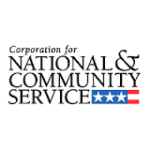 Corporation for National and Community ServiceThe Corporation for National and Community Service is a federal agency that helps more than 5 million Americans improve the lives of their fellow citizens ...Read more
Corporation for National and Community ServiceThe Corporation for National and Community Service is a federal agency that helps more than 5 million Americans improve the lives of their fellow citizens ...Read more Center for American ProgressThe Center for American Progress is an independent nonpartisan policy institute that is dedicated to improving the lives of all Americans, through bold, progressive ideas, ...Read more
Center for American ProgressThe Center for American Progress is an independent nonpartisan policy institute that is dedicated to improving the lives of all Americans, through bold, progressive ideas, ...Read more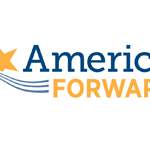 America ForwardAmerica Forward is the Washington, DC-based nonpartisan policy initiative of national venture philanthropy fund New Profit. The America Forward Pay for Success Task Force is ...Read more
America ForwardAmerica Forward is the Washington, DC-based nonpartisan policy initiative of national venture philanthropy fund New Profit. The America Forward Pay for Success Task Force is ...Read more
PFS in early childhood
 Chicago’s Pay for Success Program Evaluation: Year 3Launched in 2014, this innovative public-private partnership expands Chicago Public Schools’ Child-Parent Center (CPC) program, making it possible for more than 2,600 kids and their ...Read more
Chicago’s Pay for Success Program Evaluation: Year 3Launched in 2014, this innovative public-private partnership expands Chicago Public Schools’ Child-Parent Center (CPC) program, making it possible for more than 2,600 kids and their ...Read more Using benefit-cost analysis to scale up early childhood programs through Pay-for-Success financingThis 2015 journal article describes social impact borrowing as a new method for financing public sector, outlines contribution of benefit cost analysis (BCA), and discusses ...Read more
Using benefit-cost analysis to scale up early childhood programs through Pay-for-Success financingThis 2015 journal article describes social impact borrowing as a new method for financing public sector, outlines contribution of benefit cost analysis (BCA), and discusses ...Read more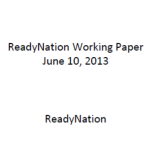 Financing human capital development for economically-disadvantaged children: Applying pay for success social impact finance to early childhood developmentThis 2013 working paper describes how PFS can be applied to funding of early childhood development programs. Citation: Dubno, J. A., Dugger, R. H., & ...Read more
Financing human capital development for economically-disadvantaged children: Applying pay for success social impact finance to early childhood developmentThis 2013 working paper describes how PFS can be applied to funding of early childhood development programs. Citation: Dubno, J. A., Dugger, R. H., & ...Read more Early childhood “pay-for-success” social impact finance: A PKSE bond example to increase school readiness and reduce special education costsThis 2012 resource is a progress report that provides an example from 2009 Pennsylvania PreK Counts to demonstrate how social impact bonds might be used ...Read more
Early childhood “pay-for-success” social impact finance: A PKSE bond example to increase school readiness and reduce special education costsThis 2012 resource is a progress report that provides an example from 2009 Pennsylvania PreK Counts to demonstrate how social impact bonds might be used ...Read more
If you require an accessibility accommodation for any DaSy Resource, please contact DaSy.

